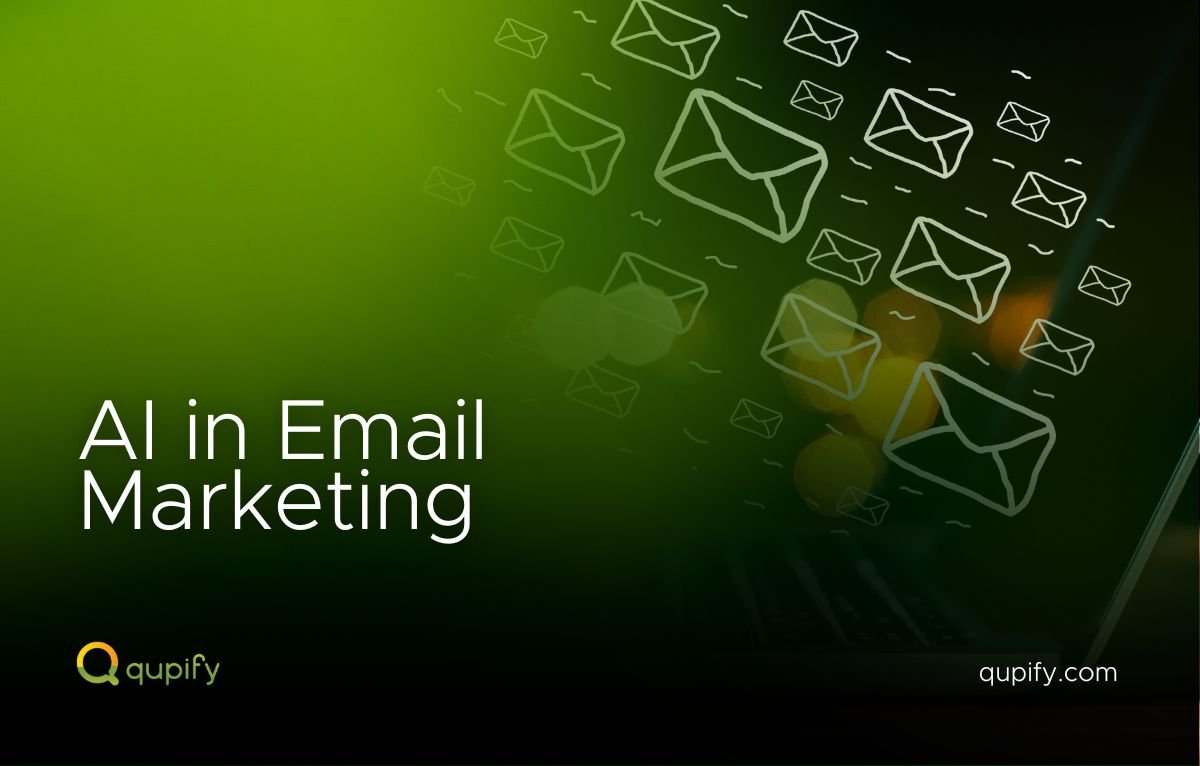Role of AI in Email Marketing
Artificial Intelligence (AI) is changing how businesses approach digital marketing. It’s especially transforming email and marketing automation, making these processes smarter and more efficient.
With AI, brands can analyze vast amounts of data quickly to understand customer behavior on a deeper level. This allows marketers to create more targeted and personalized messages, improving engagement and driving conversions.
AI also makes it easier to predict customer needs, allowing businesses to respond in real time.
In this article, we’ll explore the many ways AI is impacting email and marketing automation and why these changes matter for businesses looking to stay ahead.

How Will AI Affect Email And Marketing Automation?
AI in marketing automation involves tools like machine learning, language processing, and predictive insights. These tools allow software to learn from data, make guesses about what might happen next, and take action automatically.
In email and marketing, AI helps identify customer habits, preferences, and actions, making it easier for marketers to create effective campaigns.
Making Personalization Better with AI
Personalization is now a must in digital marketing, and AI makes it even more effective. With AI, marketers can study data such as past purchases, browsing patterns, and engagement to deliver more personalized content.
For instance, AI can suggest products tailored to a person’s interests or customize emails based on individual preferences, boosting engagement and conversion rates.
Better Targeting and Audience Segmentation
AI is great at analyzing large amounts of data, making it easier to split audiences into useful groups. With AI-driven targeting, marketers can look beyond traditional details like age or location and focus on behavior and buying habits.
For example, AI can help identify which customers are likely to respond to specific offers, ensuring messages reach those who are most interested.
Automating Customer Journeys with AI
AI helps marketers create adaptable customer journeys that adjust in real time. By responding to user actions, AI-driven automation can guide customers through a journey based on their preferences and past behavior.
For example, a customer who clicks on a product link in an email may receive follow-up messages with related suggestions, keeping them engaged.

Optimizing Email Timing and Frequency
One of AI’s strengths is spotting the best times to connect with customers. AI can analyze when users are most active and likely to engage with emails, allowing marketers to schedule sends for the best open rates.
AI can also help find the right frequency for each person, avoiding over-communication and reducing unsubscribe rates.
Predictive Insights and Campaign Performance
AI’s predictive abilities let marketers make decisions based on data before campaigns even start. By looking at past behavior, AI can predict which actions customers are likely to take, helping marketers adjust campaigns accordingly.
Predictive insights are useful for retention strategies, helping to identify customers who might leave and prompting re-engagement messages.
Faster A/B Testing and Content Optimization
A/B testing has been a key part of marketing, but AI makes it faster and more efficient. With AI-powered testing, marketers can quickly test different subject lines, layouts, and call-to-actions to see what works best. AI then uses the results to improve future emails, making content more effective and engaging.
Combining AI with CRM for Seamless Automation
Connecting AI with Customer Relationship Management (CRM) systems creates a strong tool for marketers. By merging CRM data with AI automation, businesses can gain deeper insights into customer behavior.
This connection enables smoother automation, with AI guiding each customer’s journey based on past and current data, creating a well-rounded marketing approach.
Challenges and Ethical Concerns Although
AI in email and marketing automation offers many benefits, it also brings challenges, particularly with privacy and ethics. Personalizing messages and tracking customer behavior require data, which raises privacy concerns.
Marketers need to handle these issues carefully, following laws like GDPR and being open about data use.
There’s also a risk of over-relying on AI, which can lead to automated interactions that seem impersonal.
Conclusion
AI is changing email and marketing automation, adding precision, personalization, and effectiveness to digital campaigns.
By optimizing timing, predicting behavior, and creating tailored journeys, AI helps businesses engage customers more meaningfully.
As AI technology grows, businesses must keep up with best practices and ethical standards to use AI responsibly.
Embracing AI in email and marketing automation will be important for businesses that want to connect with their audience in a more digital world.
FAQs
AI impacts email marketing by helping marketers personalize messages, predict customer behaviors, and improve engagement. With AI, businesses can analyze customer data to create tailored content, schedule emails for optimal times, and segment audiences more effectively, leading to higher open and click-through rates.
AI enhances marketing automation by making it more dynamic and responsive to customer needs. Through AI, marketers can automate tasks like sending personalized messages, targeting specific customer segments, and adjusting campaigns based on real-time data. This makes marketing campaigns more efficient and effective.
To use AI in automating email marketing, start by integrating AI tools that analyze customer data, such as engagement patterns and purchasing behavior. AI can help segment your audience, personalize content for each recipient, and determine the best times to send emails, ensuring your campaigns are timely and relevant.
AI takes automation to the next level by making it smarter and more adaptable. Traditional automation follows set rules, but AI-driven automation can learn from past data, adjust based on real-time information, and predict future actions. This allows businesses to provide more personalized experiences and respond to customer behavior in a timely way.



